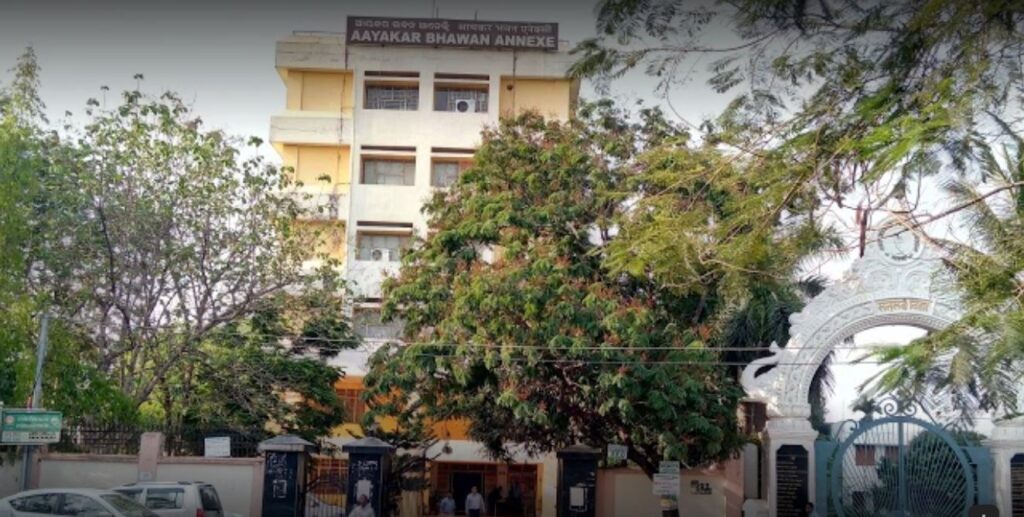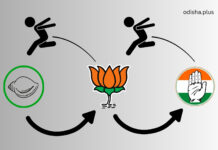Pradeep Kumar Panda

The Fifteenth Finance Commission (FC), in its report for fiscal year 2020-21, has recommended a marginal reduction in the vertical devolution of the divisible tax pool to 41 per cent from the prevailing 42 per cent.
This is due to the newly formed Union Territories of Jammu and Kashmir, and Ladakh, which will get funds from the Centre’s share, which means devolution will be for 28 states compared to 29 earlier. The FC also reintroduced performance-based incentives to states on two parameters — demographic performance and taxation efforts — and said it would recommend more incentives on further parameters, conditional upon states fulfilling certain criteria in the coming fiscal year.
While presenting her Budget, Finance Minister Nirmala Sitharaman said the Centre had decided to “substantially” accept the recommendations of the 15th FC but did not indicate which recommendations it had accepted.
The 15th FC, whose term was extended for 11 months , will submit its second report — for 2021-22 to 2025-26 — in October.
It stated in its first report that a number of key recommendations it was required to make will be examined in greater detail and will find space in the second report. The includes the feasibility of a separate defence and national security fund, for which it will form an expert group before giving its recommendations.
The report also said that the Centre should, in the coming year, rationalise centrally sponsored schemes and that centre and states should fully reveal the extent of their off-budget borrowings.
The Commission has noted the tendency of the Union and state governments to borrow outside the Consolidated fund, leading to accumulation of extra-budgetary liabilities. We recommend that in the interest of transparency, both the centre and states need to make full disclosure of extra-budgetary borrowings and take steps to eliminate them in a time-bound manner.
While the horizontal devolution — the first step in which the Centre sets aside the kitty for the states’ share — was marginally reduced, there was a 21 per cent increase in revenue deficit grants for states from Revised Estimates of 2019-20 (the last year of the 14th Finance Commission award period) to 2020-21, budget documents show.
In its report, tabled alongside the Union Budget by Finance Minister Nirmala Sitharaman, the 15th FC said that while it was inclined to leave the vertical devolution unchanged from the 42 per cent recommended by the 14th Finance Commission, it had to take into account the new UTs.
It notionally estimated that the share of erstwhile state of Jammu and Kashmir would have come to around 0.85 percent of the divisible pool. It believes that there is a strong case to enhance this to 1 percent to meet the security and other special needs of J&K and Ladakh. Since this enhancement has to be met from the Union’s resources, we recommend that the aggregate state of shares may be reduced by 1 percentage point to 41 per cent of the divisible pool. This rounding off works marginally in favour of the Centre.

By assuming nominal GDP growth rates at 10 per cent for FY20 and 11 per cent for FY21, the Fifteenth Finance Commission has made optimistic assumptions. These marginally optimistic growth assumptions imply an underestimation of Commission’s recommendation for the revenue gap grants.
Among other recommendations, the Commission also suggested that the country needs an overarching fiscal framework for Centre as well as states, on the lines of the FRBM Act, which would lay down accounting, budgeting and auditing standards to be followed at all levels of the government.
FC recommends the constitution of an expert group to draft such a legislation which will be an important first step in establishing a statutory framework to implement the essential features of a sound Public Financial Management System. The group should also clearly identify those aspects of the legislation that will require consistent legislation at the level of the states.
While making its recommendations, the Commission did not mince words on the economic slowdown and its impact on the centre and states’ resources. The report said that making forecasts for the next five years using 2019-20 as a base will be ‘excessively aspirational and inaccurate’. Conservatism will not help either. Hence, the 15th FC will wait for macroeconomic indicators over the next few quarters to make these forecasts in its next report.
The 15th FC departed in a way from previous commissions by increasing focus on local bodies. FC recommend an amount of Rs 90,000 crore as grants to local bodies for 2020-21, which is 4.3 percent of the estimated divisible pool. They have also identified the need to increase the inter se shares for local bodies grants for urban areas as they regard cities as engines of growth.
Odisha will lose around 4% central assistance according to this recommendation. The report tweaked the criteria and weights under which funds are allocated to states.
It assigned 15% weight to the population of a state, down from the 17.5% allocated by the 14th Finance Commission, but raised the weight under demographic performance from 10% to 12.5%.
The FFC report has introduced a new criteria, the “tax effect”, for states, with 2.5% weightage, while significantly reducing the weight for income distance from 50% to 45%.
Consequent to the recommendations of the FFC, the tax share of most southern states, including Andhra Pradesh, Kerala, and Karnataka, has come down, while the share of Bihar, Madhya Pradesh, Punjab, Maharashtra, and Gujarat has gone up.
The commission deferred taking a call on the contentious defence and internal security fund proposed by the Centre.
“We acknowledge the criticality of the additional ToR asking us to examine whether a separate mechanism for funding defence and internal security is to be set up. There is merit in ensuring a predictable and stable flow of funds for defence and internal security and this will receive appropriate consideration in our final report,” the report said.
The term of the N.K. Singh-headed FFC was extended by a year in November and the panel is expected to present the final report covering financial years 2021-22 to 2025-26 by 30 October.
10 out of India’s 28 states have seen a reduction in their share in central tax devolution, according to the interim report of the FFC for FY21. These states will need to carefully assess their revenue situation.
(The author is a New Delhi based Economist)





















